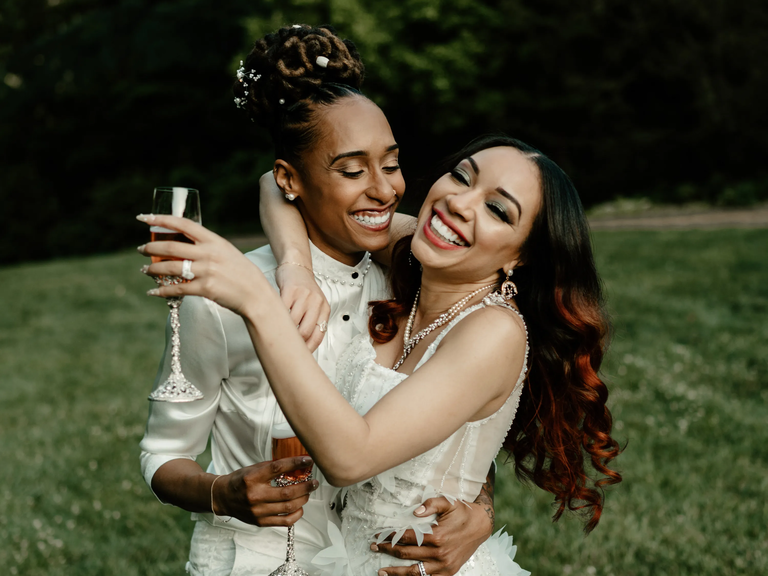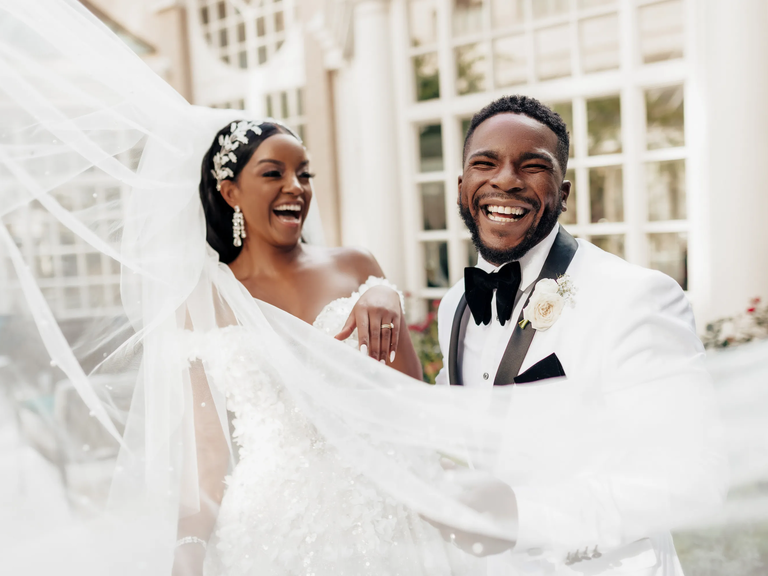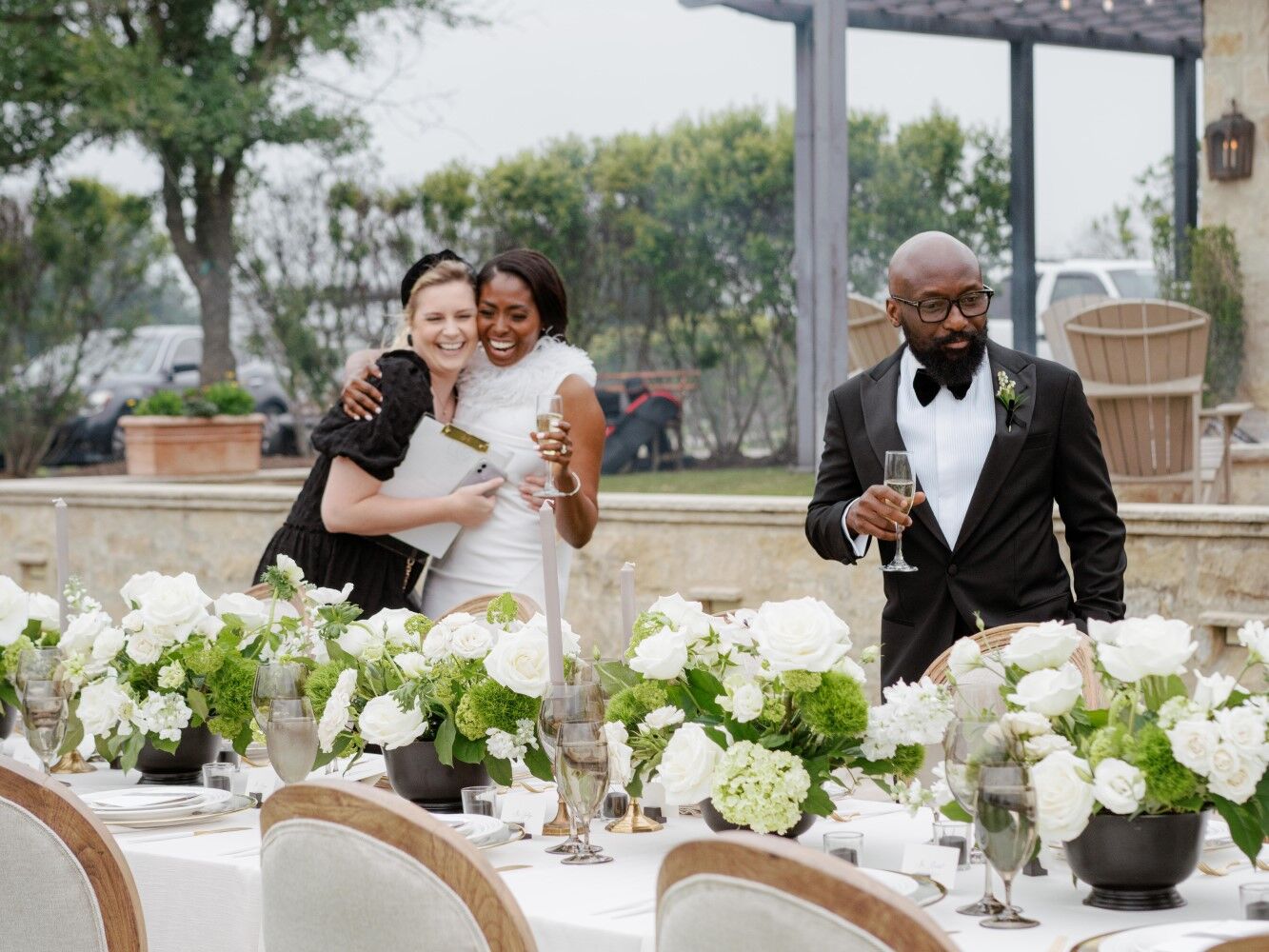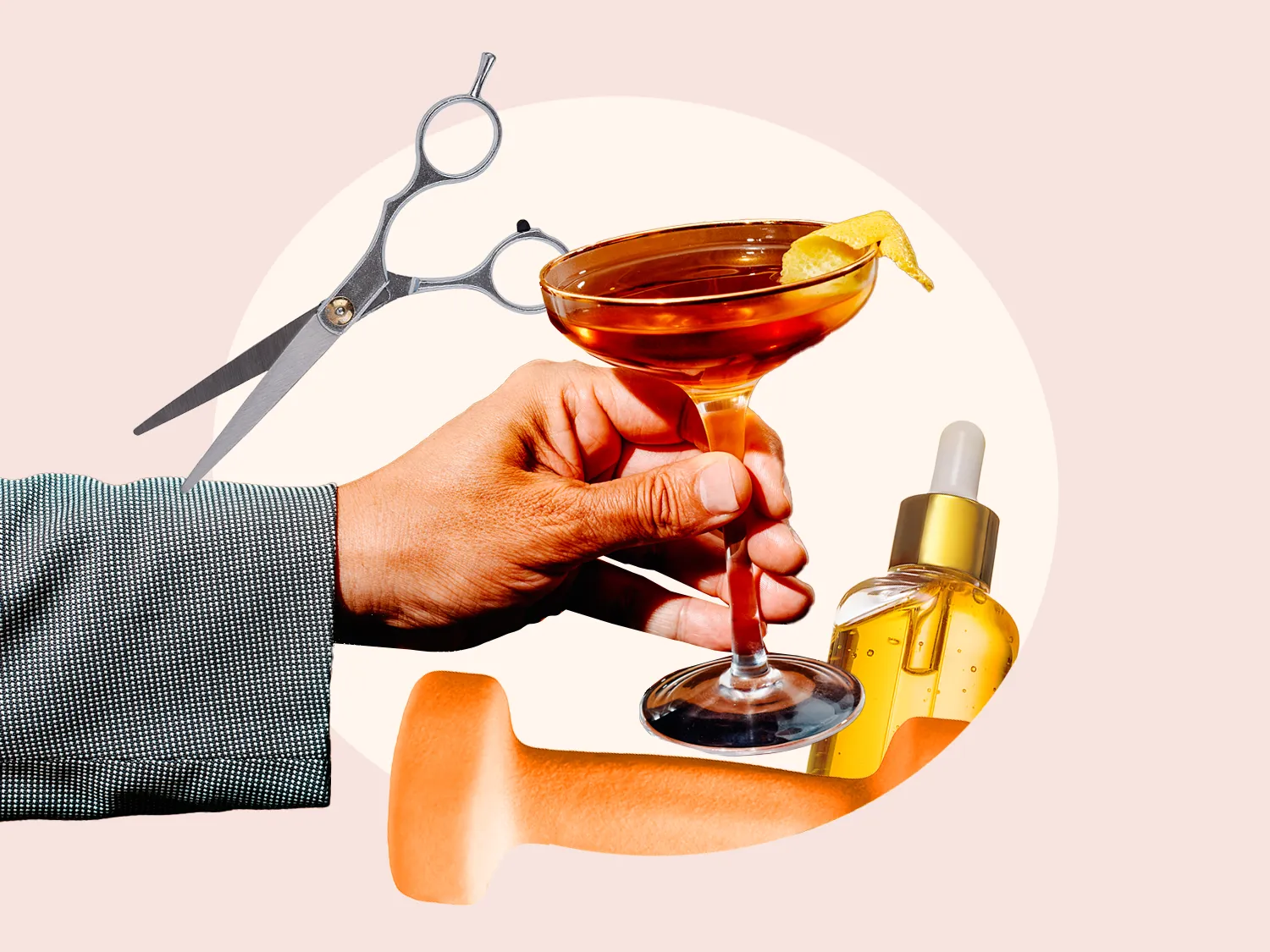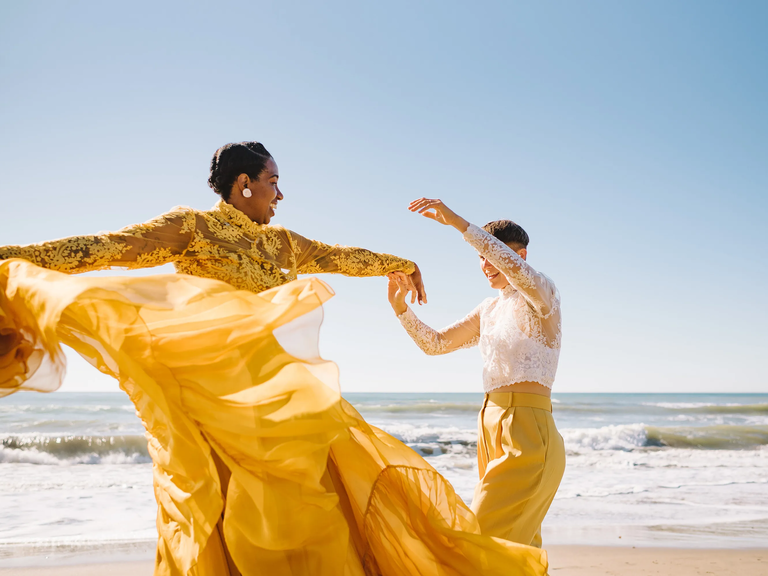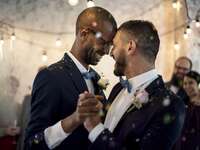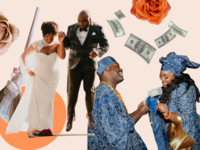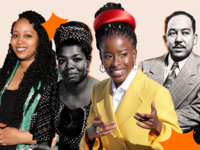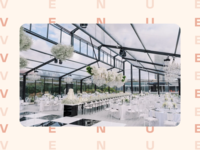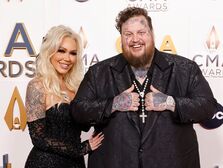An Honest Conversation About the State of Diversity and Progress in Weddings
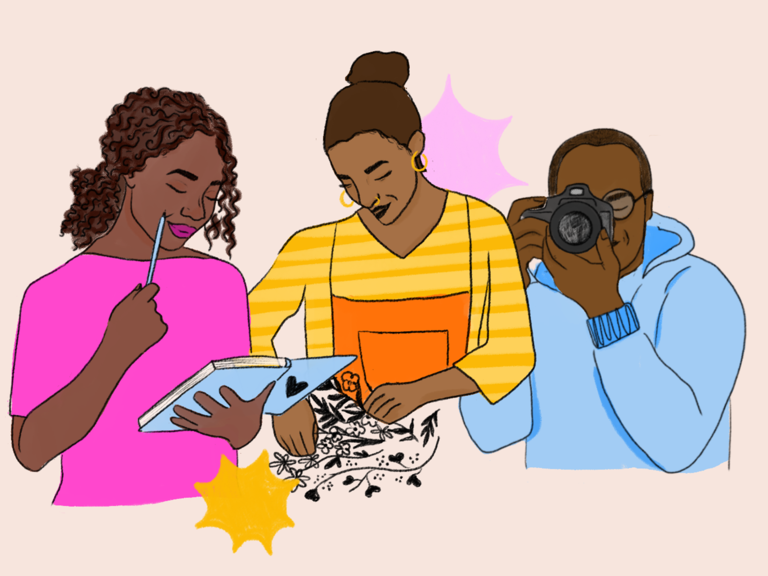
Moment of honesty? I wrote the first iteration of this story in early 2022. At the time, diversity, equity and inclusion was at the forefront of seemingly every conversation. Optimistic and eager to dive in, I've since found that as with any paradigm shift, it's not a one-and-done thing. Which begs the question—where do we stand with inclusivity in 2024? What sort of progress–linear or otherwise–have we made in the wedding industry? 12 celebrated wedding professionals, some of whom weighed in two years ago on this juncture in the industry, share their reflections on where we stand in 2024… and what needs to be done ahead.
In this story:
- Get to Know Our Expert Pros
- Progress Toward Inclusivity
- The Opportunities for Growth
- What Allyship Should Look Like
Get to Know Our Expert Pros
A compilation of talented wedding vendors, whom I had the distinct honor of connecting with for this updated piece, get real about their perspective on progress and inclusivity.
- Angelica Laws: Angelica Laws is the owner and lead planner of Angelica & Co. Weddings based in the Washington, DC, area. Laws was recognized as a 2023 honoree of The Knot Ones to Watch.
- Ashley Mason: Ashley Mason is a Texas-based wedding planner and owner of Saunter Weddings. She is sought after for her calm demeanor and elegant wedding designs.
- Chanda Daniels: Chanda Daniels is a California-based wedding planner and owner of Chanda Daniels Planning and Design. She is also a co-founder of Ethos West Collective, a membership collective that highlights the exquisite work of Black luxury wedding professionals.
- Elaine Jimenez: Along with her husband Kaleb, Elaine Jimenez runs the renowned wedding videography firm KEJ Productions. Jimenez is an Emmy Award winner and has traveled to events over four continents to capture bespoke content.
- Erica Benson: The Knot Ones to Watch honoree Erica Benson is a wedding photographer at the helm of Alternative Standards based in San Diego. She also previously spoke with The Knot about inclusivity in wedding photography editing, specifically as it relates to the nuances of photographing melanated skin tones.
- Jamésa Alexander: Jamésa Alexander is a Washington, DC-based wedding planner and owner of Jayne Heir Events. Alexander is sought after for her "exceptional organizational skills, responsiveness, and vast knowledge of the industry," according to a former client.
- Kiara Hancock: Kiara Hancock, the owner of Seattle-based K. Hancock Design, was honored as one of the 2023 members of The Knot Ones to Watch. Hancock is known for being "creative, thoughtful, and laid-back."
- Lola Akingbade: Lola Akingbade is a Maryland-based wedding planner and owner of MasterPlan Events. Akingbade's company has previously been recognized as part of The Knot Best of Weddings.
- Melissa Williams and Alyssa Edwards: Melissa Williams and Alyssa Edwards are wedding planners with DC-based B Astonished Events, owned by Williams. The company has created luxury events in destinations ranging from Italy to Mexico.
- Petronella Lugemwa: Petronella Lugemwa is a wedding photographer based in the NYC area. Lugemwa also notably invests in the industry through her work with WeddingPro as an Educator.
- Sacia Matthews: Sacia Matthews is a North Carolina-based wedding photographer and owner of Sacia Matthew Photography. Matthews' clients describe her as talented, personable, and professional.
Progress Toward Inclusivity
Sometimes I feel like we blinked and jumped from 2020 to 2024. But, a lot has transpired in the world since the racial reckoning and unrest that came about in the summer of 2020. "The last few years have been…something, haven't they?" says designer Kiara Hancock. "We have experienced, bore witness to, and participated in so many hard things as a collective."
Things have happened, but have things changed? As a white female, I will never fully understand what many of my esteemed colleagues of diverse backgrounds have to navigate within the wedding industry. Thankfully, friends and respected peers in the industry spoke candidly about their thoughts on racial progress in the US within the wedding industry. "It's interesting to reflect back on [several years ago] and the excitement that was buzzing around and the forward progress that was being made," says photographer Sacia Matthews. "In many ways, there has been forward motion. There seems to be more of an intentional emphasis on a collective of diverse voices and images, which is truly so great. However, when it comes to diversity within the wedding industry from a vendor perspective, we still have a ways to go. I still find myself wondering if my peers in this industry still don't see anything wrong with existing in a space that lacks so much diversity?"
Many vendors in this piece expressed that the increased inclusion and representation of people of color in the industry was progress they're proud to see. When asked what industry-wide progress she was most proud to witness in 2020 and onward, wedding planner Ashley Mason points to visible change. "Prior to the hard conversations of more recent years, representation was minimal on many wedding platforms," she says. "Now, there's an invitation there that shows value for what BIPOC people bring to the table." Wedding planner Lola Akingbade notes that "diversity produces greater creativity. I am looking forward to more inclusivity and collaboration moving forward."
"Feeling seen is a good first step in what will inevitably be a long, winding journey to fostering inclusivity and growth for marginalized communities and identities," Hancock explains. As these pros articulated: While progress has been made–a win that pros and couples alike should celebrate and acknowledge–the key is allowing that progress to catalyze even more changes. Rather than treating it as a finish line, we should all be begging the question: where do we go from here?
The Opportunities for Growth
A major opportunity for the industry at large lies in the fact that change can't only happen in peripheral groups or communities, but at the very core of the industry. It also must be accompanied by a long-term commitment. As I set about researching this story, the themes of authenticity and perseverance came up time and again. As photographer Petronella Lugemwa eloquently articulates, "[The word] 'diversity' is not a trend; it's a long-term strategic objective to reflect an increasingly diverse society. Things won't change overnight, but these steps forward are what will drive change and momentum."
Videographer Elaine Jimenez summed up what many pros expressed during the follow-up research for this article. "Candidly, my optimism regarding genuine diversity and inclusion initiatives in the wedding industry has waned over the past year," says Jimenez. "While many participated in the symbolic gesture of posting a black square in 2020, the tangible commitment to inclusive practices appears to be drifting." Such reflections indicate that the industry must assess deeply whether their actions fall on the performative side of things or truly contribute to tangible change.
Economic Inclusivity and an Emphasis on Black Excellence
Now, let's go through a practice: When you picture a luxury or ultra-luxury wedding planner, what image comes to mind? It's impossible to have a conversation about progress toward racial equity without acknowledging prevailing economic divides. "Inclusivity needs to also encompass economic inclusivity," says photographer Erica Benson.
The idea of economic inclusivity also came up with planner Chanda Daniels, who mentioned the 2023 biographical drama film Origin, written and directed by Ava DuVernay. The movie is based on the book Caste: The Origins of Our Discontents, by Isabel Wilkerson. Daniels shared how, in many ways, she sees similarities between the film, which describes racism in the US as an aspect of a caste system, and the wedding industry.
"In order for some folks to survive, an illusion is created that there always has to be someone above and someone below," says Daniels, while adding that the conversation around breaking down barriers "was good for a year and a half."
On her part, she noticed something else: "Then, it started to go back. Only this time, it went back differently." Daniels recalls that the goal was previously to become a luxury wedding vendor. In recent years, steps were taken to make the luxury space more inclusive, but that's opened up a new separation growing with the expanding prominence of the ultra-luxury market in weddings. "It feels like there always needs to be a next level," says Daniels. "Once one level is open to more people coming in (those who aren't traditionally seen in that level), then suddenly there is a group of folks that create a new level. It gets frustrating. All that time, all that effort toward inclusivity—It can't be for nothing."
While there will always be broad ranges of wedding budgets, the crux of the issue deals with breaking down assumptions about who can and should operate at any level of the industry. So let's circle back to that original question: When you picture a luxury or ultra-luxury wedding planner, what image comes to mind? "When we fall victim to placing people, or couples, into boxes we're more hesitant to allow them to show us anything aside from what else we've placed inside of said box," says planner Angelica Laws.
"I hope for more authentic acknowledgment and celebration of the talents and skill of vendors from diverse backgrounds," notes Jimenez. Inclusivity must extend beyond representation and actually encompass far greater: According to Jimenez, it's "valuing and honoring the mastery and artistry that individuals of color bring to the table." Akingbade echoes those sentiments: "I would like to see a greater inclusion of vendors, affording them opportunities to actively contribute and participate in these events."
Lugemwa expressed similar sentiments, by sharing: "I'd love to see greater diversity in leadership positions and organizations, especially within the luxury community."
LGBTQIA+ Inclusion and Redefining What Love Looks Like
Here's the thing: Not all weddings have a bride. Taking stock of the intersectionality between conversations about sexual orientation, gender identity and racial diversity has to exist for progress to be made in any of those arenas.
"We are not a monolith," emphasizes Daniels. "While I am glad to see a lot of the wedding industry featuring the LGBTQIA+ and gender-neutral community and conversation, it's still very much in the confines of 'traditional white American love.' There isn't a lot of highlight or focus of those minority communities within the LGBTQIA+ and gender-neutral communities and it leaves a lot of room for growth in this area," says Benson. So in much the same way that race and the economy intersect, so too do the conversations around race and the LGBTQIA+ community.
"[Intersectionality] will continue to be a huge factor in our society," explains Laws. "To me, this again comes back to mindset. If we're categorizing people by anything other than their personality and core values we're doing our industry a major disservice."
Commit to Change With Sincerity and Consistency
In addition to acknowledging the importance of intersectionality, deeply rooted commitment to change is another significant area of opportunity, as Mason notes. "A lot of the sayings, hashtags, pledges, reach-outs and black squares felt like they were missing the most important component. Sincerity. There's a distinct difference between authentically caring and pseudo agendas."
Jimenez echoes those sentiments and calls on industry leaders to "take a second look at your inner circles. If they still look like a clone army, it might be time for a refresh. If your social circle is all cut from the same cloth, chances are your teams and clients will be too. Broaden that figurative table and extend invitations to more people of color. The days of carrying our own chairs are growing tiresome. It's time for a revolution in seating arrangements, starting with a more diverse and inclusive gathering."
What Allyship Should Look Like
As Jimenez illustrated, there's a difference between expecting someone to bring their own chair and setting a place for them to actively welcome their presence. It's not the responsibility of members of historically under-represented groups to teach allies. Rather, allies themselves need to dig in and commit to participating in bringing about equity. "I think we're used to having to advocate for ourselves, but having someone else consistently recognize, speak up, and hold others accountable is a beautiful reminder that our stories are valid, needed, and seen," says Lugemwa.
"Allies are people who stand with you in support and challenge the barriers you face by using their influence," explains Mason. "They ask themselves how can I help make room for you in spaces that have shut you out or muted your voice? We all have influence but it misses full potential when the number of spectators outnumbers actual participants. If you get the chance to open the door for BIPOC people, take it. It benefits everyone to feel seen, heard and appreciated!"
Actionable steps toward better allyship:
- Look Inward and Invest in Doing the Work
- Listen and Have Uncomfortable Conversations
- Speak Up When Diversity is Lacking
- Prioritize Consistent Inclusion
- Avoid Tokenism
- Connect and Collaborate Genuinely
- Put Your Money Where Your Mouth Is
- Avoid the Bystander Effect
- A Long-Term Investment and Commitment
Look Inward and Invest in Doing the Work
"Allyship is a verb, so I see your good intentions and would like to raise them to trackable actions," says Hancock. "I want you to commit to learning about our lived experiences so that you can approach making change from a place of having even a little understanding of what it is like to be who we are in this world. Yes, it is absolutely okay to come directly to the source when you have a question, but I suggest trying to do your own work first and then approaching someone you trust or respect with a growth mindset. And if they pass on talking to you about it or being your teacher, realize that it is okay because they don't owe you to be your teacher. I believe mutual respect is key to the ability to be open to new ideas."
Laws agrees that education is key and encourages pros to stay up to date on trends and practices outside of "your immediate sphere. Educate yourself on how to style and appropriately manipulate curl patterns that aren't silky. Adopt more shade variety in your beauty palettes. Learn how to manipulate your camera settings to beautifully capture both lighter and darker complexions. The list is endless, but these are some healthy head starts. Once you do those things, broadcast your new knowledge so that it's known what efforts you're putting into doing your part with inclusivity."
Listen and Have Uncomfortable Conversations
As someone who is incredibly action-oriented, this is one area of focus that is hardest for me. But for that very reason, I also know it's something I need to focus on the most. "While some progress has been made, what burns in my mind daily is that all too famous quote, 'Hope is not a strategy,'" says Hancock. "There is always more work to be done; we can share that load, and while I recognize your progress, I should feel safe in asking for and challenging you to do more."
"The human aspect will always be at the core of what we do in this industry," says planner Jamésa Alexander. "And I'm grateful for the support and outreach that we've received over the last couple of years."
Jimenez says that most conversations that lead to growth and understanding are "hardly comfortable." Yet that discomfort is part of the human experience–and one worth untangling in the wedding industry. "It's through engaging in difficult conversations that opportunities for increased representation within the industry emerge," she says.
Speak Up When Diversity is Lacking
Finding people who advocate for you, even when you're not in the room, is paramount. It's easier to advocate for people while they're present to hear that support and pat you on the back. But the pros I spoke with touched on the importance of integrity over performance, and doing the work when no one's watching. "If you see a situation that lacks diversity then say something about it right away, it takes all of us to step out of our comfort zone and be the person to say something is not right," says Daniels. "We all need to take action."
Prioritize Consistent Inclusion
As trends fade and time passes, inclusion should still be a consistent goal couples, pros and publications alike are working toward. "It's not enough to just highlight BIPOC vendors when it's trendy," emphasizes Benson. "Do it always. Do it because you value their work. Do it because you want them to be included in your team."
Avoid Tokenism
What is tokenism? According to the Oxford English Dictionary, it's defined as "the practice of making only a perfunctory or symbolic effort to do a particular thing, especially by recruiting a small number of people from underrepresented groups in order to give the appearance of sexual or racial equality within a workforce."
Opening up the scope of vendors you interact with is a great way to ensure you truly find the pro best suited for the task, says Benson. "I'm not saying hire BIPOC just to hire BIPOC, but be open to the consideration that the person who would be best suited for the job you're hiring for, might be someone of color. We've been overlooked for our talents, capabilities, relatability, and professionalism for far too long. Having one token Black vendor friend is not enough. If you can name the 10 best wedding vendors you love, you should also be able to name 10 BIPOC wedding vendors you at least know of."
Similarly, Lugemwa would "love to know that all wedding industry vendors have a diverse Rolodex of vendors they consistently reach out to, network, connect with and collaborate with to better serve all their clients."
Connect and Collaborate Genuinely
Event design and planning experts Melissa Williams and Alyssa Edwards emphasize the importance of partnership. "Non-black pros can be better allies by partnering, collaborating and supporting BIPOC vendors." Alexander recalls that over the years she's had, "numerous non-Black vendors take the time to introduce themselves to me and to simply ask how they can be an ally and help to further diversity in the industry. It's been so great to build new relationships with other vendors who care about representation and creating a way to partner and work together."
Jimenez emphasizes that inclusion needn't be limited to "couples or vendor teams who mirror my appearance." For wedding vendors, artistic vision and shared values should also influence collaboration. "The synergy in our work extends far beyond any cultural similarities we might have with a couple," says Jimenez. "Our shared values are the real connection that drives our collaboration. So no need to assume I'm exclusively a match for those who are Black or Latino–it's all about alignment with our approach and artistic vision."
As part of collaboration, Akingbade emphasizes the power of referrals. "In the industry, referrals and recommendations often stem from familiarity and comfort, typically involving professionals who are known or considered friends. By purposefully expanding networks and gaining knowledge about individuals who may not share similar appearances, there is an increased likelihood of fostering collaboration and working together. Even if immediate collaborations may not materialize, establishing open lines of communication can pave the way for potential future collaborations."
Put Your Money Where Your Mouth Is
That collaboration we were just talking about? It shouldn't happen for free. "Being intentional with where and how we spend our money is huge, and including BIPOC-owned companies that are an appropriate fit is a huge way to be intentional," says Matthews.
Hancock also emphasizes the importance of paying people of color for their work. The pro shares that people should not expect "to get access to our ideas and joy to appear to be an ally, but offering financial remediation for that access. I love that you love our art and the joy that it brings, but we need to make money for the beauty we deliver."
Avoid the Bystander Effect
Weddings aren't just about the couple, and planning inclusively means considering the actions of your wedding guests as well. "I would encourage clients to have conversations with their family, friends and wedding party about interacting with your BIPOC vendors," suggests Benson. "At this point in my career, I've probably shot 500 weddings and while all my couples have been absolutely amazing and inclusive, I've still had a lot of racist interactions with families at weddings. So much so, I had to add a section to my contract that basically says, 'If there are people at your wedding that make me uncomfortable, I'm going to leave.'"
A Long-Term Investment and Commitment
Change isn't a one-and-done action. "Continue to highlight the work year-round, not just when something tragic happens within our communities, on MLK Jr. Day, Black History Month, AAPI Heritage Month, and for PRIDE celebrations," encourages Hancock. "We live in this skin and these bodies 24/7/365, and diminishing the love we receive to these moments in time can feel performative. Please don't stop doing it, but expand beyond it."

